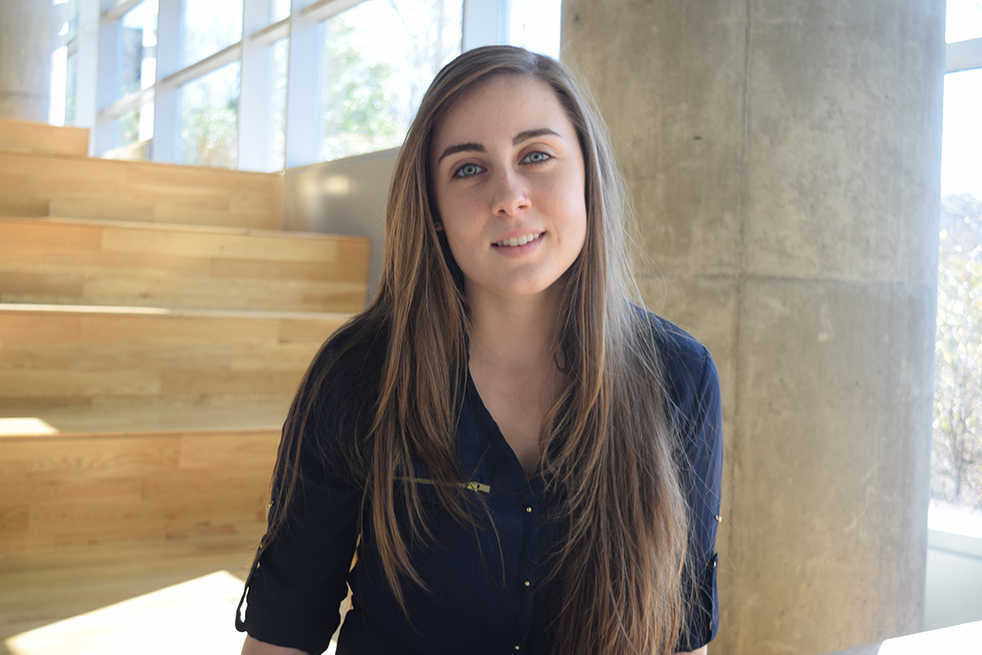Between middle and high school, I attended a Catholic all-girls school for seven years. During that time, I experienced countless Catholic masses, morning prayers and term papers written about my personal faith.
I also went from being a devout Episcopalian to an apathetic agnostic.
While many of my friends were Catholic, the disillusionment many people experienced distanced them from the church, especially later in high school.
We weren’t beaten by nuns, we didn’t flounce around in tiny skirts and the school admitted students of all religions.
The stereotypes about Catholic schools are long outdated, but there were many unique aspects you wouldn’t find elsewhere. For example, we attended religion class every day and wrote term papers about our faith or the history of the Church.
Often writing about one’s faith for a grade is difficult and feels invasive, especially if you don’t believe what your teacher does. Teachers wouldn’t explicitly dock your grade for not being Catholic but you always had to relate your personal faith back to Catholicism.
Classes like Bioethics were heavily skewed towards the Church’s morality, which put students who disagreed at a disadvantage, particularly on controversial topics like stem cell research and abortion.
I’m terrible at shutting up and keeping my opinion to myself so I frequently found myself in debates with the teacher of the class and other students. Most of my friends knew to keep quiet.
The dogma of the Church was also a point of contention for some students, even those who were raised Catholic.
While the Church hasn’t released any official teachings about pets, Pope Pius IX famously said that because animals don’t have souls they can’t go to heaven.
If you ever want to make a classroom of children cry, I would recommend telling them that.
Later, another teacher told us that pets can go to heaven but wild animals can’t but either way, it seems cruel and unfair.
Personally, I was most upset when a religion teacher told us that because divorced people aren’t welcome in the church, they also can’t go to heaven.
At this point in my education I had essentially been told that my pets, my parents and my grandparents weren’t going to be in heaven with me. I know the things my teachers told me weren’t always in line with the Church’s teachings, and as an Episcopalian, that’s not what my faith taught, but hearing ideas like those from authority figures ultimately hurt my faith and drew me away from Christianity. Learning about the Bible and the history of the Church also made me doubt central concepts.
My first semester of religion class in high school was dedicated to the gospels of Matthew, Mark and Luke.
John’s gospel has fewer similarities with the others so it doesn’t lend itself to compare and contrast.
We learned that certain passages were written deliberately to reinforce that Jesus was truly dead and came back to life. We also learned that the reason for including four gospels rather that just two or three, especially when they’re so similar, is because having so many sources makes Jesus’ life and miracles harder to dispute.
Bending words and descriptions seemed dishonest and manipulative to me, which never sat well to the point I distinctly remember learning it almost eight years later.
My classes also covered the history of the Church, including schisms between the Catholic Church and the Eastern Orthodox Church, the Catholic Church and the Anglican Church and the Catholic Church and the Protestant Church.
The divides within Christianity made me doubt my faith because everyone seemed to have valid points and I wasn’t sure who was right. The arguments between the churches also seemed so trivial in the grand scheme of beliefs.
Non-denominational churches seem like a better alternative but more often than not they are mega churches with a less personal faith experience.
Overall, the more I learned about the Church, the less I wanted to be a part of it.
For me, Catholic school had a negative effect on my faith despite being raised in a Christian household. Students who weren’t Christian to begin with seemed to hold onto their faith better than those who were because they weren’t being forced to analyze their religion on a day to day basis.
My experience only represents me, however, and some students definitely thrive going to a school that supports their faith.
At the end, for students whose faith isn’t unshakable and strong, I would not recommend Catholic school. Although it may serve with the intent of cementing one’s faith, it could possibly push people, like myself, further away.
